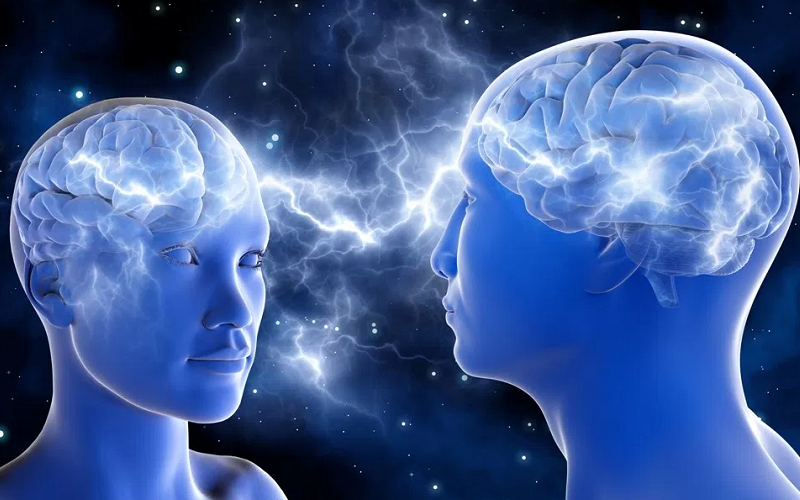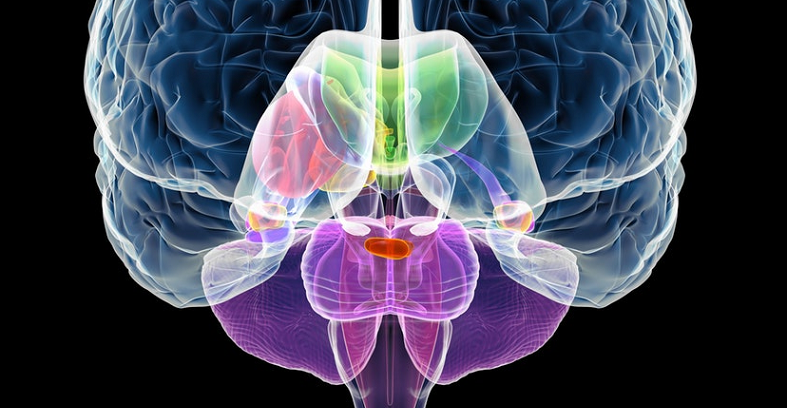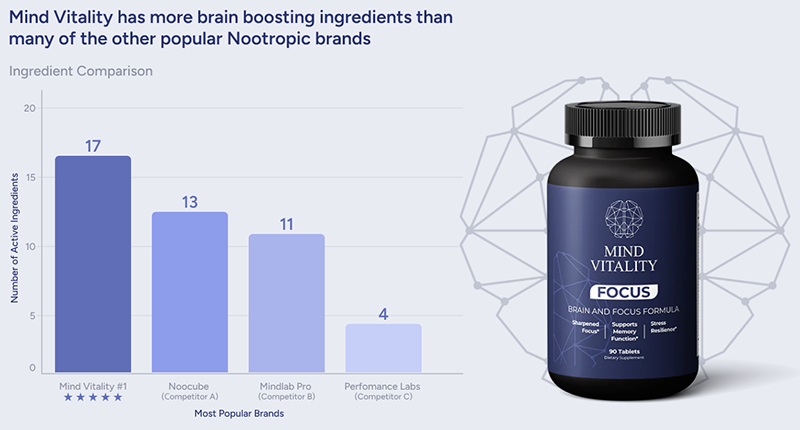
In the intricate tapestry of human cognition, mirror neurons have emerged as a fascinating thread, weaving together our ability to empathize, learn, and connect with one another. Here we delve into the extraordinary potential of mirror neurons to enhance empathy and facilitate learning, highlighting their implications for personal growth, social cohesion, and clinical applications.
Contents
What are Mirror Neurons?
Mirror neurons are a specific type of brain cell that fire both when an individual performs an action and when they observe someone else performing the same action. They were first discovered in the early 1990s by Italian neuroscientist Giacomo Rizzolatti and his colleagues while conducting research on the motor cortex of macaque monkeys [1]. These researchers noticed that certain neurons in the monkeys’ brains fired not only when the monkeys performed an action but also when they saw a human or another monkey performing the same action.
Where Mirror Neurons are Located
Mirror neurons are primarily found in two regions of the brain:
- Ventral premotor cortex: This area is located in the frontal lobe, and it is involved in planning and executing motor actions. It has direct connections to the primary motor cortex, which controls voluntary muscle movements [2].
- Inferior parietal lobule: This region is situated in the parietal lobe and plays a role in integrating sensory information from different modalities, such as vision and touch. It is also involved in attention and the perception of one’s own body in relation to the environment [3].
Purpose and Function of Mirror Neurons
Mirror neurons are thought to play a significant role in understanding and interpreting the actions of others. By mirroring the observed actions in our own brain, we can gain insight into the intentions and emotions of others, thus facilitating social cognition. Some key functions of mirror neurons include:
- Understanding others’ actions: Mirror neurons enable us to decode and understand the actions and intentions of others by allowing us to mentally simulate their movements in our own brains. This ability is essential for social interactions and cooperation.
- Facilitating social cognition: Mirror neurons contribute to our capacity for empathy, allowing us to recognize and respond to the emotions and feelings of others. They also play a role in learning through imitation and are thought to be involved in the development of language and communication skills.

Mirror Neurons and Empathy
Mirror neurons play a crucial role in empathy, the ability to understand and share the feelings and emotions of others [4]. This is achieved through two primary mechanisms:
- Emotional contagion: Mirror neurons allow us to feel what others are feeling by mirroring their emotional state in our own brain. This process, known as emotional contagion, enables us to resonate with others’ emotions, deepening our understanding of their experiences.
- Vicarious experiences: Through the mirror neuron system, we can mentally simulate the actions, intentions, and emotions of others, allowing us to put ourselves in their shoes. This vicarious experience enhances our empathic abilities, fostering greater compassion and social connectedness.
The mirror neuron system interacts with other brain regions involved in empathy, further strengthening our capacity to understand and respond to the emotions of others:
- Anterior insula: This region is involved in processing emotions and is activated when we experience or witness emotional states, such as pain or disgust. The anterior insula’s connection to the mirror neuron system allows for a deeper understanding of others’ emotional experiences [5].
- Anterior cingulate cortex: This area of the brain is responsible for detecting conflicts and errors, as well as processing emotions and pain. Its interaction with the mirror neuron system contributes to our ability to empathize with others’ emotional and physical suffering [6].
Implications for Clinical Applications
The role of mirror neurons in empathy has led to the exploration of their potential in clinical applications:
- Autism spectrum disorder: Individuals with autism spectrum disorder often have difficulty with social cognition, including understanding and responding to others’ emotions. Research has suggested that the mirror neuron system may be disrupted in autism, and interventions targeting this system could potentially improve social skills and empathy in affected individuals.
- Empathy training for healthcare professionals: Enhancing empathy in healthcare professionals can improve patient care and communication. By understanding the role of mirror neurons in empathy, targeted training programs can be developed to strengthen healthcare providers’ empathic abilities, leading to better patient outcomes and overall satisfaction.

Mirror Neurons and Learning
Mirror neurons play an essential role in observational learning, the process of acquiring new knowledge and skills by observing others. This type of learning is crucial in various aspects of human development and social interaction:
- Imitation learning: The mirror neuron system enables us to learn through imitation by simulating the observed actions in our own brain. This process allows us to acquire new motor skills and behaviors, such as learning to dance or play a musical instrument, by watching others perform these actions.
- Social learning: Through the mirror neuron system, we can learn about social norms, customs, and expectations by observing the behaviors of others in different social contexts. This type of learning is crucial for navigating social situations and understanding the unwritten rules that govern human interactions.
Language Acquisition and Mirror Neurons
Research has suggested that mirror neurons may also play a role in language acquisition, particularly in the development of the ability to understand and produce speech:
- Understanding spoken language: The mirror neuron system is thought to contribute to our ability to comprehend spoken language by simulating the observed speech sounds and movements in our own brain, allowing us to decode and understand the speaker’s message.
- Learning to produce speech: During early language development, children learn to produce speech sounds by observing and imitating the speech of their caregivers. Mirror neurons may facilitate this process by enabling the child to mentally simulate the observed speech movements, ultimately leading to the production of these sounds.
Implications for Education and Skill Development
Understanding the role of mirror neurons in learning has several implications for education and skill development:
- Teaching strategies: Incorporating observational learning and imitation into teaching strategies can enhance the learning process, particularly for motor skills and language development. Teachers can model desired behaviors or skills and encourage students to observe and imitate these actions.
- Peer learning: Encouraging peer learning, where students learn from one another through observation and imitation, can be an effective way to harness the power of mirror neurons for skill acquisition and problem-solving.
- Virtual reality and video-based learning: Technological advancements in virtual reality and video-based learning can provide immersive, observational learning experiences that leverage the mirror neuron system for skill development and knowledge acquisition.
Practical Ways to Harness Mirror Neurons for Empathy and Learning
By understanding the role of mirror neurons in empathy, we can implement practical strategies to enhance our empathic abilities and foster deeper connections with others:
- Active listening: Engaging in active listening, where you fully focus on the speaker, observe their body language, and provide verbal and non-verbal feedback, can help activate the mirror neuron system and deepen your understanding of their emotions and experiences.
- Mindfulness and meditation: Practicing mindfulness and meditation can help you become more aware of your own emotions and those of others. Some meditation techniques, such as loving-kindness meditation, specifically target the development of empathy and compassion.
- Empathy exercises: Participating in empathy exercises, such as role-playing or perspective-taking activities, can help strengthen your ability to understand and share the feelings of others by activating the mirror neuron system.
Strategies to Enhance Learning
Harnessing the power of mirror neurons for learning involves leveraging observational learning and imitation in various contexts [7]:
- Modeling desired behaviors: Parents, educators, and mentors can model desired behaviors, such as effective communication or problem-solving skills, to facilitate learning through observation and imitation.
- Peer learning and collaboration: Encouraging peer learning and collaboration in educational settings can help students learn from one another, capitalizing on the power of mirror neurons for skill acquisition and knowledge transfer.
- Multimedia and experiential learning: Utilizing multimedia resources, such as videos and interactive simulations, can provide observational learning opportunities that activate the mirror neuron system. Experiential learning, where learners actively engage in hands-on activities, can also facilitate learning through imitation and practice.
Supporting Brain Health
Maintaining overall brain health can indirectly support the proper functioning of mirror neurons and other neural systems:
- Nutrition: Consuming a balanced diet rich in essential nutrients, such as omega-3 fatty acids, B vitamins, antioxidants, and magnesium, can contribute to overall brain health and cognitive function, which may indirectly benefit the mirror neuron system.
- Physical activity: Engaging in regular physical activity has been shown to support brain health, enhance cognitive function, and promote neuroplasticity, which could indirectly benefit the functioning of mirror neurons.
- Mental stimulation: Participating in mentally stimulating activities, such as learning new skills, solving puzzles, or engaging in creative pursuits, can help maintain cognitive function and support the proper functioning of neural systems, including mirror neurons.

Nutritional Supplements That Benefit Mirror Neurons
While there is no specific nutritional supplement directly targeting mirror neurons, maintaining overall brain health may contribute to the proper functioning of mirror neurons and other neural systems. Some nutritional supplements and dietary components that are thought to benefit overall brain health and cognitive function are listed here.
Omega-3 Fatty Acids
While there is no direct evidence that omega-3 fatty acids specifically benefit mirror neurons, they are crucial for overall brain health, which could indirectly support the proper functioning of mirror neurons and other neural systems. Omega-3 fatty acids, particularly DHA (docosahexaenoic acid) and EPA (eicosapentaenoic acid), are known to have several beneficial effects on brain function [8]:
- Neuronal membrane health: DHA is an essential structural component of neuronal cell membranes. It helps maintain membrane fluidity, which is vital for the proper functioning of neurons and communication between cells. A healthy neuronal membrane may indirectly support the mirror neuron system.
- Neurotransmitter function: Omega-3 fatty acids influence the release and reception of neurotransmitters, such as dopamine and serotonin, which play critical roles in various cognitive and emotional processes. An optimized neurotransmitter function might have a positive impact on the mirror neuron system’s performance.
- Anti-inflammatory effects: EPA has potent anti-inflammatory properties, which can help reduce neuroinflammation. Chronic inflammation can impair cognitive function, and by alleviating inflammation, EPA may indirectly support the functioning of various neural systems, including mirror neurons.
- Neuroprotection: Omega-3 fatty acids have been shown to protect against age-related cognitive decline, promote neuroplasticity, and support the growth of new neurons. A healthy brain environment might be beneficial for the proper functioning of mirror neurons.
B Vitamins
B vitamins play crucial roles in overall brain health and cognitive function, which may indirectly support the proper functioning of mirror neurons and other neural systems. B vitamins, particularly B6, B9 (folic acid), and B12, contribute to various aspects of brain function:
- Neurotransmitter synthesis: B vitamins are involved in the synthesis of neurotransmitters, such as serotonin, dopamine, and norepinephrine, which play essential roles in mood regulation, cognition, and the proper functioning of neural networks, including mirror neurons.
- Homocysteine metabolism: Elevated homocysteine levels are associated with cognitive decline and neurodegenerative diseases. B vitamins, specifically B6, B9, and B12, help regulate homocysteine levels, thus potentially maintaining a healthier brain environment for mirror neurons and other cognitive processes.
- Energy production: B vitamins participate in the metabolism of carbohydrates, proteins, and fats, providing the energy necessary for optimal brain function, which could indirectly support the mirror neuron system.
- DNA synthesis and repair: B vitamins, especially B9 and B12, are involved in DNA synthesis and repair, which can impact the growth and maintenance of brain cells. A healthy brain environment might be beneficial for the proper functioning of mirror neurons.
- Myelin sheath maintenance: Vitamin B12 is essential for maintaining the myelin sheath, which insulates nerve fibers and ensures efficient nerve signal transmission. This could indirectly support the mirror neuron system and overall neural communication.
Antioxidants
Antioxidants play essential roles in overall brain health and cognitive function, which may indirectly support the proper functioning of mirror neurons and other neural systems. Antioxidants, such as vitamins C and E, have various beneficial effects on brain function [9]:
- Protecting against oxidative stress: The brain is highly susceptible to oxidative stress due to its high oxygen consumption, lipid content, and metabolic activity. Antioxidants neutralize harmful free radicals, protecting brain cells from oxidative damage, which could indirectly support the proper functioning of mirror neurons and other cognitive processes.
- Preventing neurodegeneration: Oxidative stress is implicated in neurodegenerative diseases such as Alzheimer’s and Parkinson’s disease. By reducing oxidative stress, antioxidants may help slow down the progression of these diseases, maintain a healthy brain environment, and support the proper functioning of various neural systems, including mirror neurons.
- Anti-inflammatory effects: Some antioxidants, such as vitamin E, have anti-inflammatory properties, which can help reduce neuroinflammation. Chronic inflammation can impair cognitive function, and by alleviating inflammation, antioxidants may indirectly support the functioning of mirror neurons and other neural systems.
- Maintaining blood-brain barrier integrity: Antioxidants, such as vitamin C, contribute to the maintenance of the blood-brain barrier, which protects the brain from harmful substances in the bloodstream. A healthy blood-brain barrier is vital for overall brain health and could indirectly support the mirror neuron system.
Magnesium
While there is no direct evidence linking magnesium specifically to the functioning of mirror neurons, magnesium is crucial for overall brain health and cognitive function, which may indirectly support the proper functioning of mirror neurons and other neural systems [10]. Some of the key roles of magnesium in brain function include:
- Nerve signaling: Magnesium is involved in regulating nerve signaling by acting as a natural calcium channel blocker. It helps maintain the balance between excitatory and inhibitory neurotransmitters, which is crucial for proper neural communication and the functioning of various neural systems, including mirror neurons.
- Neurotransmitter production and release: Magnesium plays a role in the synthesis and release of neurotransmitters, such as serotonin, dopamine, and glutamate, which are essential for mood regulation, cognition, and the proper functioning of neural networks, including mirror neurons.
- Neuroprotection: Magnesium has been shown to exhibit neuroprotective properties, helping to prevent neuronal damage and supporting brain plasticity. A healthy brain environment might be beneficial for the proper functioning of mirror neurons and other cognitive processes.
- Stress reduction: Magnesium is known for its calming effect on the nervous system, and it may help reduce stress and anxiety, which can impact cognitive function. By mitigating stress, magnesium could indirectly support the functioning of mirror neurons and other neural systems.
- Supporting brain energy metabolism: Magnesium is essential for the production of ATP (adenosine triphosphate), the primary energy source for cells. Ensuring adequate energy supply is crucial for optimal brain function, which could indirectly support the mirror neuron system.
References
[1] The mind’s mirror
[2] The role of ventral premotor cortex in action execution and action understanding
[3] Organization of the Human Inferior Parietal Lobule
[4] Do Mirror Neurons Give Us Empathy?
[5] Myelin Sheath: The Unsung Hero of Neuronal Communication and Cognitive Health
[6] Anterior Cingulate Cortex: Unique Role in Cognition and Emotion
[7] The Mirror Neuron System and Observational Learning: Implications for the Effectiveness of Dynamic Visualizations
[8] Long-chain omega-3 fatty acids and the brain: a review of the independent and shared effects of EPA, DPA and DHA
[9] Neuroprotective Effect of Antioxidants in the Brain
[10] Mirror Neurons and the Magnesium Group of Remedies

